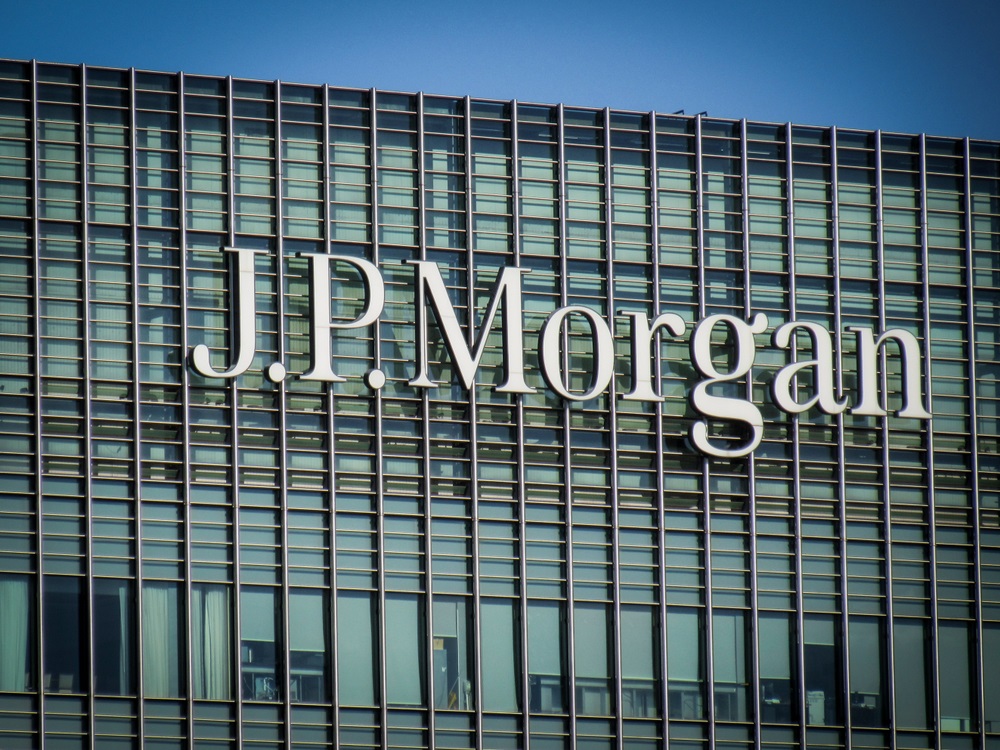JPMorgan Predicts This Index Could Outperform S&P 500
06.04.2025 15:33 2 min. read Alexander Stefanov
JPMorgan Chase predicts that the MSCI EAFE Index, which tracks major stocks from Europe, Australasia, and the Far East, could soon start outperforming the S&P 500 after years of lagging behind.
Analysts Andrew VanWazer and William M. Smith from the investment giant believe that a shift in market dynamics may be underway, marking the end of the S&P 500’s long-standing dominance.
For over 16 years, the S&P 500 has consistently outpaced the MSCI EAFE Index, delivering annual returns of 11.9% compared to just 3.6% for the international benchmark. However, JPMorgan now sees signs that this trend might reverse, especially in light of emerging challenges for the US market.
One of the key turning points, according to the bank’s strategists, was the recent announcement from China’s AI startup DeepSeek, which unveiled a model capable of rivaling top American AI platforms. This news immediately affected the US market’s relative valuation compared to the EAFE Index, dropping it from 55% to 49%, and further declining to 39% as of mid-March.
JPMorgan’s analysts also point to several factors that could further erode the S&P 500’s edge: economic uncertainties in the US, declining consumer confidence, inflation driven by tariffs introduced during the Trump administration, and the potential resolution of the Ukraine conflict. These elements, they argue, could pave the way for the EAFE Index to take the lead.
Looking ahead, JPMorgan’s long-term capital market assumptions suggest that EAFE stocks may outperform US stocks by 1.4% over the next 10 to 15 years, with projected returns of 8.1% compared to 6.7% for the S&P 500. While some investors have doubted this forecast, recent events highlighting tech sector volatility and trade risks have made the case for EAFE’s potential rise more compelling.
-
1
Binance Pushes Back Against FTX Lawsuit, Calls Claims “Baseless”
21.05.2025 8:00 2 min. read -
2
Ark Invest Buys Into eToro as Shares Surge on Nasdaq Debut
16.05.2025 8:00 1 min. read -
3
New Ethereum Initiative Targets Institutional-Grade Security Standards
16.05.2025 14:00 1 min. read -
4
JPMorgan CEO Warns Market Is Overlooking Risks from Tariff Tensions
22.05.2025 8:00 1 min. read -
5
FIFA Teams Up with Avalanche to Launch Its Own Blockchain
23.05.2025 9:00 1 min. read
Yuga Labs Moves to Dismantle ApeCoin DAO in Favor of Centralized Structure
In a bold move to reshape the future of ApeCoin, Yuga Labs has introduced a proposal that would dissolve the existing ApeCoin DAO and replace it with a streamlined management body called ApeCo.
ARK Invest Makes Bold Bet on Circle as Stablecoin Giant Enters Wall Street
Circle’s arrival on the New York Stock Exchange sent shockwaves through the market, and Cathie Wood’s ARK Invest wasted no time jumping in.
WazirX Restructuring Plan Blocked by Singapore High Court
WazirX’s bid to restructure and compensate victims of a $230 million hack has been rejected by the Singapore High Court, putting the exchange’s recovery roadmap in limbo.
Tariffs Not a Threat to S&P Momentum, Says Fundstrat’s Tom Lee
Fundstrat’s Tom Lee believes that lingering caution in the stock market could actually be setting the stage for another bullish breakout.
-
1
Binance Pushes Back Against FTX Lawsuit, Calls Claims “Baseless”
21.05.2025 8:00 2 min. read -
2
Ark Invest Buys Into eToro as Shares Surge on Nasdaq Debut
16.05.2025 8:00 1 min. read -
3
New Ethereum Initiative Targets Institutional-Grade Security Standards
16.05.2025 14:00 1 min. read -
4
JPMorgan CEO Warns Market Is Overlooking Risks from Tariff Tensions
22.05.2025 8:00 1 min. read -
5
FIFA Teams Up with Avalanche to Launch Its Own Blockchain
23.05.2025 9:00 1 min. read


